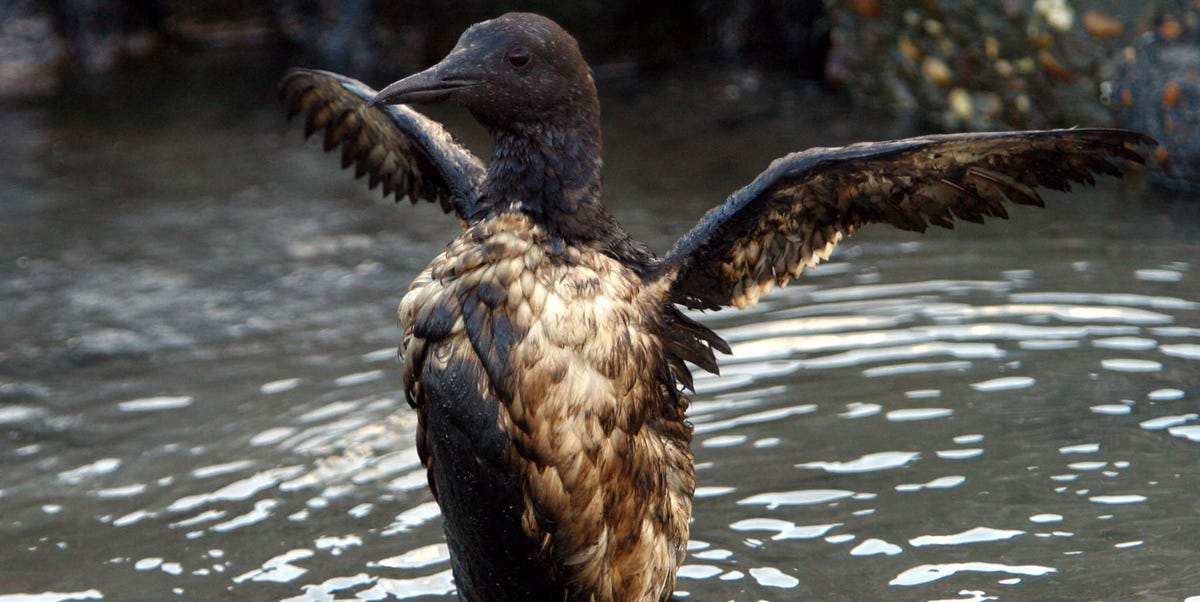
- The Trump administration is planning on rolling back protections that are part of the Migratory Bird Treaty Act (MBTA), which could devastate avian populations.
- Proposed cuts include easing regulations and penalties for accidental bird deaths resulting from things like oil spills and turbines.
The Trump administration has plans to roll back protections for several bird species that fall under the purview of the Migratory Bird Treaty Act (MBTA) and could face endangerment and extinction as a result. Some of the birds immediately threatened by cuts are the Pink-footed Goose (Anser brachyrhynchus), the Nazca Booby (Sula granti), and the Rufous Night-Heron, (Nycticorax caledonicus).
On June 5, the Department of the Interior shared their Draft Environmental Impact Statement (DEIS) in which they outline looser protections regarding “take,” which includes the “killing, capturing, selling, trading, and transport of protected migratory bird species without prior authorization by the Department of Interior U.S. Fish and Wildlife Service.”
Additionally, proposed rollbacks would make it harder to hold parties—such as companies and corporations—accountable for what's known as “incidental take,” which involves bird deaths resulting from industrial activities, which the National Audubon Society says include “birds flying into uncovered oil pits or other predictable and avoidable killing.”
One of the proposed actions listed in the DEIS document includes developing a regulation to define “the scope of the MBTA to exclude incidental take.” Further explanation seems to make it easier for companies to follow lax environmental regulations:
By taking action to clarify legal standards under the MBTA, the public, businesses, government agencies, and other entities are afforded legal clarity and certainty regarding what is and is not prohibited under the MBTA. If the proposed rule were finalized, individuals, businesses, and other entities would not be financially or criminally liable under the authority of the MBTA for incidental take of migratory birds.
Under the proposed changes to the MBTA's guidelines, virtually all activities that kill birds by accident would not be legally punishable. Considering we've lost billions of birdsd between 1970 and the present day, rollbacks on bird protections could prove devastating. Additionally, an Audubon report reveals that “two-thirds of North American birds are at increasing risk of extinction from global temperature rise.”
David Yarnold, president and CEO of the National Audubon Society, has called upon Congress to take a stand and help save bird species.
“While America is in turmoil, the Trump Administration is continuing its relentless war on nature,” says Yarnold. “This administration is churning out policies that make it easier to kill birds, pollute our air and water, and endanger our health.”
Yarnold—and “hundreds of thousands of Americans”—want to ensure that species are protected and have the chance to continue species propagation and migratory patterns with as little human interruption as possible.
This content is created and maintained by a third party, and imported onto this page to help users provide their email addresses. You may be able to find more information about this and similar content at piano.io
"bird" - Google News
June 10, 2020 at 05:11AM
https://ift.tt/2AYzl2A
Looks Like the U.S. Will Lose Much-Needed Protections for Bird Populations - Popular Mechanics
"bird" - Google News
https://ift.tt/2s1zYEq
https://ift.tt/3dbExxU
Bagikan Berita Ini














0 Response to "Looks Like the U.S. Will Lose Much-Needed Protections for Bird Populations - Popular Mechanics"
Post a Comment